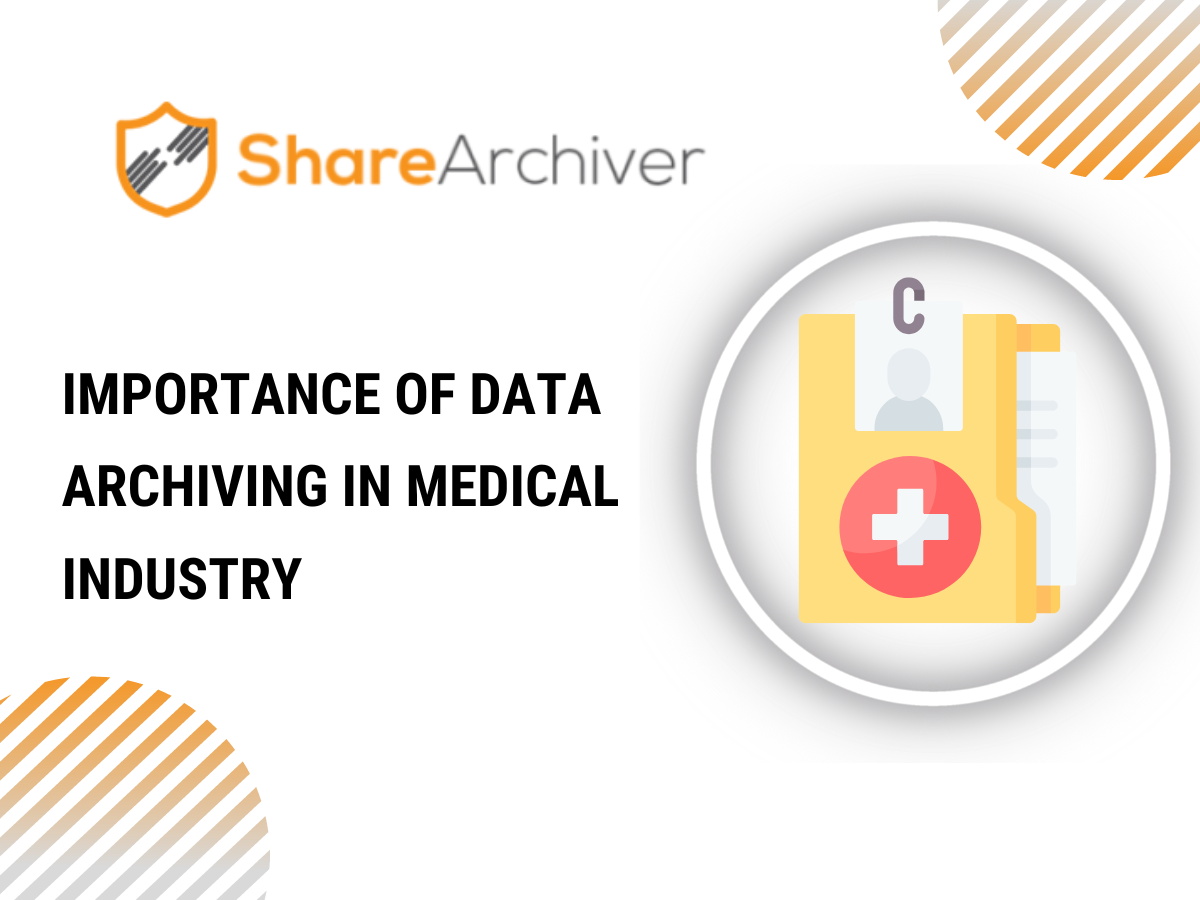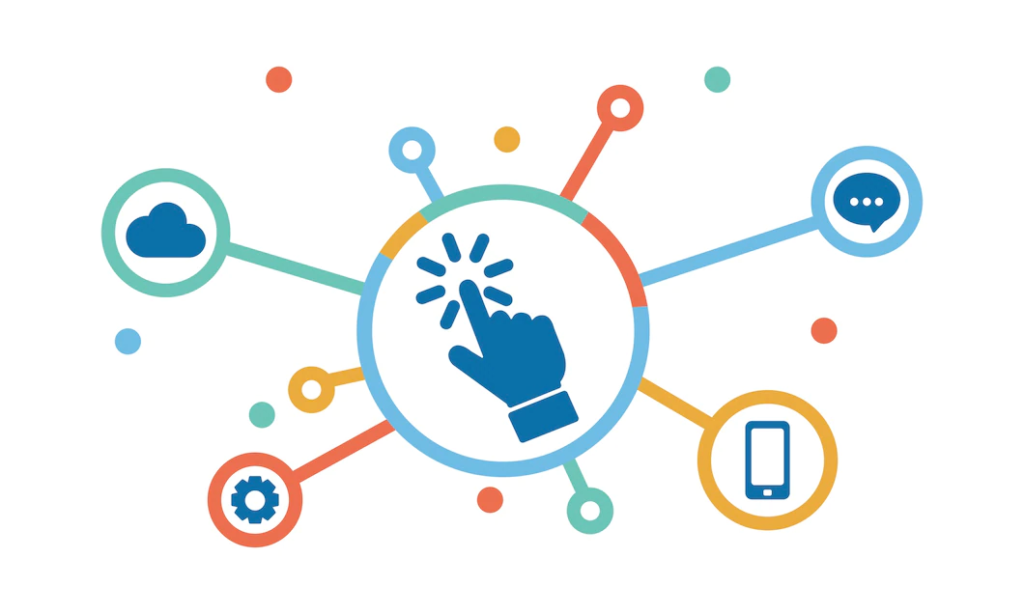The world is digitizing fast, and people have been more curious about their health since COVID-19. This makes it difficult for the healthcare industry to decide where to put considerable volumes of data and how to manage it. Data management is daunting in healthcare when you have to look over more than one thing.
Data management in the healthcare belt includes processing, compliance, security, governance, tools, and insights, all under a budget. Data archiving in the medical industry is the only way to streamline such huge volumes of records and files.
There are an increasing number of patients which means there is a need for a data management solution for the medical industry that is beneficial in different ways. Healthcare organizations are the biggest data providers in the world as they have patients’ medical histories, reports, receipts, diagnostic details, and the list can go on.
Besides medical services, the latest healthcare department also has to focus on compliance, patient data protection, data accessibility, and data retention. This is why data archiving in the medical industry has picked up heat in recent years. In this blog, you will learn why data archiving is important in the medical industry.
- Reducing Risks
- Data Accessibility
- Ensure Compliance and Data Governance
- Peace of Mind
- Track Patient History
- Easy Data Migration
- High Productivity
- More Reliability and Added Performance
- Cost Effectiveness
- More Room for Innovation
- Continual Data Accession
- Specifying Data
- Ever-Changing Data
- Unified Data Management
- Data Connectivity
- Single Source of Integration
- Easy Monitoring
- Secure Backup
Let’s dive in detail of each so that you have better understanding to them:
1. Reducing Risks
Data in the healthcare industry is super sensitive. Therefore, even the old data holds some value – since no data in this industry can be deleted, data archiving helps in ensuring the risks of data corruption are reduced. Furthermore, data archiving in the medical industry helps to store patient data for a very long time and can be accessed whenever needed.
Patients want surety that their data is in the right hands. With the right data archiving solution, healthcare departments can limit the authorization of sensitive information and data. Plus, the data gets secure from any cyber attacks.
2. Data Accessibility
The healthcare department has lost hundreds and thousands of patients’ medical data due to traditional storage solutions. These solutions included the papered files, records, and hardware storage devices.
With data archiving in the medical industry, accessibility has become easier and faster. Healthcare professionals need a patient’s medical history within minutes, and data archiving solutions have made it possible.
3. Ensure Compliance and Data Governance
Patients’ data management is done with the help of standard processing, tools, and technologies. This process can be emerged with data archiving in the medical industry to ensure compliance concerning data protection, accessibility, and timely data retrieval.
For the best data security and compliance practices, you must first identify which data needs to be archived and for how long. You have to keep the compliance regulations in mind to set archiving automation. For example, you can archive important data for a year, emails for 4 to 5 years and a patient’s medical record for 7 to 10 years – resulting in data governance.
4. Peace of Mind
Data archiving in the medical industry is essential because it gives a two-way benefit; to the patient and the healthcare provider as well. The patients will know that their medical records are safe and are accessible to them on urgent demand.
Knowing that the patient is not stressing about data security, the healthcare department can experience quietude. With a modern archiving software solution, you can automate data archiving and focus on the other aspects of your business..
5. Track Patient History
Patients change doctors, and doctors need all previous medical history. Data archiving in the medical industry helps doctors to keep track of patients’ old medical records and make an accurate diagnosis. In addition, this storage solution allows patients to retrieve their medical history in any form and at any time.
Such information is also useful for the hospital or clinic to see how their patient is doing and which doctor proved to be more helpful for them. This data is further transferred to data centers globally.
6. Easy Data Migration
In the medical industry, data migration in huge volumes is very common. The IT departments transfer data to the data centers. Data migration over cloud storage or opting for different methods can result in corruption and data loss. Archived data is small in size, making it easy and quick to transfer.
Since data is stored in multiple locations, even if data is somehow damaged, more copies of data are available and ready to be transferred. Therefore, data archiving in the medical industry also helps in maintaining data legacy.
7. High Productivity
The healthcare department already has too much on their plates, and the last thing they need is unmanageable data. That is why data archiving in the medical industry has gained a lot of importance – medical staff can manage many patients’ medical records with a few clicks.
With an archiving solution, the IT department has to do the minimum; they have to set queries for data archiving. This improves workflow in every department of the hospital by putting in least effort.
8. More Reliability and Added Performance
Data archiving in the medical industry has onboard security and reliability. Performance is also better in every part of the medical industry over the past years. Healthcare industries have been able to set security protocols on their own terms and standards. This also gives the patients a sense of relief.
Even the most advanced healthcare departments use some kind of archiving software solution to boost their overall productivity. This cuts some slack for the employees and allows them to manage other vital duties.
9. Cost Effectiveness
Healthcare departments’ budget is a lot, but in the past years, most of it was spent on managing data. Ever since data archiving in the medical industry has stepped in, the spending plan is now used in more formidable things. Storing data has always been expensive, but data archiving solutions cut costs most effectively.
Medical data has no count, and storing is one problem; the second biggest issue is the hierarchy of storing data. This issue cannot be solved by opting for cloud or hardware storage solutions. Data archiving in the medical industry helps in putting data in the right place.
10. More Room for Innovation
If all the resources are used in managing data, then there will always be a lack of innovation. Ever-growing data can become a big issue for any company, and you can imagine how difficult it can be in the medical industry.
Data archiving in the medical industry is the only way to make more room for innovation. The medical sector will expand further with each passing year, and data archiving solutions can go hand in hand, like benefitting from AI and big data.
11. Continual Data Accession
Old data is valuable, and new data buildup will never stop growing – this is why extreme management is needed. You can say that data sorting has become a routine, and the only solution to make it easier is by archiving data.
When it comes to data storage for more vital records and files, data archiving in the medical industry is the answer. There is very little need for adding new storage solutions since data archiving is doing the greater good.
12. Specifying Data
Medical data comes from different places and forms; organizing such complex datasets takes time. However, data can be quickly listed and compiled with the benefit of data archiving in the medical industry.
This helps the doctors, IT department, and the managing staff to distinguish between different patients and their medical records. In addition, having order in massive datasets helps in the time of medical emergency.
13. Ever-Changing Data
Medical data changes almost daily, making data management harder than ever. For example, a regular patient can have flu, migraine issues, spasms, or any new disorder or disease. Managing a single patient’s file can take days if a reliable data archiving solution is not implemented.
A patient’s medical record has to be corrected, updated, and even expanded, considering the example. However, data archiving in the medical industry can allow staff to maintain every patient’s medical file within minutes, no matter how many times it changes.
14. Unified Data Management
In the medical industry, data pours from different places – the doctors, the ER, the OT, IT, and the list can go on. The data coming from all these places could be of a single patient; managing this much data can be strenuous. Data archiving in the medical industry helps unify data in the easiest way possible.
For example, if a person has an accident, the medics in the ambulance will give different data, and the medical staff in the ER will provide related but divergent data. The doctor attending to the patient will give a separate analysis, and so on. Data archiving can unify such data pieces.
15. Data Connectivity
In the medical sector, patients and doctors have to be connected at all times. This is because medical emergencies can arise anytime, and doctors must be updated about the patient’s medical history.
Doctors can be instantly furnished with all the details with a standard connectivity solution. Data archiving in the medical industry has made this happen. Doctors can connect with the patient’s history with a click of a button.
16. Single Source of Integration
Data is only valuable when it is accessible. We have talked a lot about the accessibility of medical data to doctors and patients. Medical data is also useful to big data companies, and there should be a single integration point between them and the healthcare center. Having an extra system set up for such interactions can cost a fortune.
When you archive data, the scalability increases, resulting in easy transfer, efficient file archiving and data sharing, and migration of data. This cuts costs on many levels and adds more points to compliance.
17. Easy Monitoring
This benefit goes out to the IT department and the doctors. Both need to monitor things on their ends. The IT department can monitor data flow and get an idea about how to manage it. The doctors can monitor their critical patients at all times. This adds efficiency from all sides.
Data archiving software provides a central data management and monitoring solution for large amounts of data. The best thing about data archiving in the medical industry is that you can archive different data sets.
18. Secure Backup
Not just secure but with data archiving, you can make data backups faster than ever. After sorting and organizing data, all it takes is a few clicks to make multiple copies of records and files. This may be the only type of backup data that can be stored in different locations without having to worry about data loss or using other resources. Data archiving in the medical industry can help with disaster recovery and data backup at the time of need.
Final Thoughts
Caring for patients’ medical records and files is as important as looking after them. This is why it is becoming more and more difficult for healthcare systems to manage data. With the right data archiving solution, the healthcare industry will be able to optimize data and patient management at the same time.
ShareArchiver has been helping almost every industry make use of their storage space for more beneficial projects and work. They have budget-friendly archiving solutions; hit them up for a free demo.


























